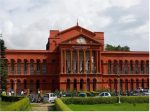
Combination anti-HIV antibody infusions suppress virus for long period, says study
PTI, Jun 2, 2022, 10:30 AM IST

According to a new study, HIV patients who started antiretroviral therapy (ART) early in their infection experienced a long period of HIV suppression after receiving two broadly neutralising anti-HIV antibodies without the use of ART (bNAbs). The study’s findings were published in the journal ‘Nature.’
The findings suggest that combination bNAb therapy might offer a future alternative to daily ART for people living with HIV. The research was conducted by scientists at the National Institute of Allergy and Infectious Diseases (NIAID), part of the National Institutes of Health, in collaboration with researchers at the NIH Clinical Center; the Maple Leaf Medical Clinic in Toronto; the Frederick National Laboratory for Cancer Research; Harvard Medical School, Boston; and The Rockefeller University, New York City. Although oral antiretrovirals are highly effective at keeping HIV levels under control, it can be difficult for some people with HIV to adhere to a daily medication regimen. Additionally, the medicines can present long-term side effects from lifetime usage and create the possibility for the development of drug-resistant viruses.
In previous research, single bNAbs showed only limited success in keeping virus levels low partly because bNAb-resistant HIV either already existed or emerged in the individual. To address this problem, researchers in the NIAID Laboratory of Immunoregulation tested a dual combination of bNAbs–called 3BNC117 and 10-1074–targeting different parts of the surface of HIV. The researchers conducted a two-component clinical trial between September 2018 and January 2021. The first component was a Phase 1 randomized, placebo-controlled trial involving 14 participants with HIV. These individuals had started ART during the early phase of their infection.
They were taken off antiretrovirals shortly after receiving their first infusion of the combination bNAbs or placebo. Participants received up to eight bNAb or placebo infusions–two in the first month and once monthly thereafter–for 24 weeks. HIV levels and CD4 T-cell counts were measured every two weeks. The purpose of the study was to see if treatment with the bNAbs could suppress HIV in the absence of ART. None of the seven participants who received the bNAb treatment had to restart ART before 28 weeks post-infusion compared to six of the seven participants who received placebo. The median duration of time off antiretrovirals was 39.6 weeks (bNAb group) and 9.4 weeks (placebo), respectively.
The second component of the study involved bNAb infusions in a group of 5 study participants who were not taking ART but still maintained low levels of HIV. In this smaller group, only two of the five study participants maintained complete suppression of the virus for an average of 41.7 weeks following the bNAb transfusions. The authors note that the bNAb combination was ineffective in suppressing HIV if participants harboured virus resistance to either or both experimental antibodies before receiving the infusions. The presence of pre-existing antibody-resistant HIV poses a major challenge going forward, according to the authors. No safety issues occurred in the study, and the infusions were well-tolerated.
The study authors conclude that the combination bNAb therapy can be highly effective in suppressing HIV in the absence of ART for extended periods, provided that the antibody-resistant virus is not present at the time individuals begin antibody treatment. Larger studies are needed to confirm the findings, but as next-generation bNAbs with increased potency and durability become available, “there is reason to believe that infrequent administration (i.e., twice a year) of such antibodies, possibly along with a long-acting injectable antiretroviral drug, could lead to ART-free HIV suppression for extended periods (years) in infected individuals,” the authors wrote.
(With inputs from ANI)
Udayavani is now on Telegram. Click here to join our channel and stay updated with the latest news.
Top News
Related Articles More

World Malaria Day: WHO calls for equitable health access

What role does genetics play in breast cancer? How can genetic testing help with early breast cancer diagnosis?

Father’s diet can affect anxiety in sons, metabolism in daughters: Study in mice finds

Low back pain, depression, headaches main causes of poor health: Study

Surgical options for Parkinson’s disease
MUST WATCH
Latest Additions

NIA arrests key accused in 2023 attack on Indian High Commission in London

Three persons run over by train in Bengaluru

Indian nationals aboard ‘MSC Aries’ in good health, return delayed due to technicalities: MEA

Husband has no control over wife’s ‘stridhan’: SC

IT sleuths threatening raided leaders to claim money belongs to me, Cong: DK Shivakumar
























